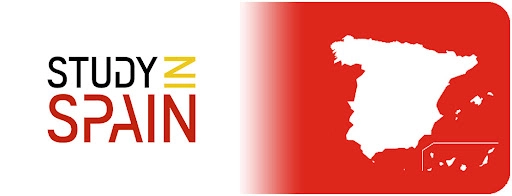
Top MFin Colleges in Spain
MFin Colleges in Spain: A SnapshotThinking about getting your Master of Finance in Spain? Great choice. Spain is now on…
Table of Contents

If you're interested in advanced financial modeling, risk management, or algorithmic trading, several MFin programs in Europe offer specialized tracks in Quantitative Finance. These are ideal for students with a strong mathematical or engineering background.
Top Schools with Quantitative Focus:
These schools often rank highly in master in quantitative finance rankings in Europe and are a springboard to roles in hedge funds, trading desks, and structured finance.
With ESG (Environmental, Social, and Governance) investing growing rapidly, many top MFin schools in Europe now offer electives or modules focused on sustainable finance.
Top Picks for ESG and Sustainability-Focused Finance:
These programs are ideal for students targeting careers in impact investing, green bonds, or ESG strategy consulting.
If your goal is to break into investment banking, Europe’s top finance schools are perfectly placed to launch your career.
Top Investment Banking-Focused MFin Programs:
These programs rank highly on lists like the best universities for investment banking in Europe due to location, alumni presence, and employer partnerships.

If rankings are your starting point, here’s how the top Masters in Finance (MFin) programs stack up in Europe:
💡 Pro Tip: Don’t just rely on one source. Cross-check Financial Times (FT), QS, and Economist rankings based on your career goals—whether you’re eyeing roles in investment banking, quant finance, or fintech.
European MFin programs offer some of the highest placement rates globally, especially among top-tier schools. Here's a quick snapshot:
| Business School | Placement Rate (within 6 months) | Key Employers |
|---|---|---|
| London Business School | 96% | Goldman Sachs, Morgan Stanley, McKinsey |
| HEC Paris | 98% | BNP Paribas, HSBC, BlackRock |
| St. Gallen | 93% | UBS, Credit Suisse, BCG |
| Bocconi University | 94% | J.P. Morgan, Citi, PIMCO |
| IE Business School | 92% | BBVA, Santander, Amazon |
| Cambridge/Oxford | 97% | Barclays, Bain & Co., Deutsche Bank |
These graduates land roles across:
Europe’s top MFin programs are strategically located near major financial centers. Depending on your target role or lifestyle preference, you can choose your base accordingly:
| City | Known For | Top Schools Nearby |
|---|---|---|
| London | Global finance hub, IB & PE opportunities | LBS, Imperial, Oxford, Cambridge |
| Paris | Corporate finance, asset management, ESG | HEC, ESCP, ESSEC, INSEAD |
| Milan | Luxury finance, corporate banking, M&A | Bocconi |
| Frankfurt | ECB, banking regulation, fintech policy | St. Gallen (close proximity), Mannheim |
| Madrid | Fintech innovation, ESG consulting | IE Business School |
| Zurich | Private banking, quant roles, high finance | St. Gallen, ETH Zurich (quant focus) |
Note: Programs such as quantitative finance master rankings in Europe, Spanish MBA + MFin hybrids, and finance-focused international MBA tracks also tend to cluster around these urban finance hubs.

If you’re more inclined toward math-heavy, data-driven finance careers like trading, risk analytics, or quantitative asset management, Europe has some of the best quantitative finance master’s programs in the world. These are designed for students with strong technical backgrounds in mathematics, statistics, or engineering.
| University | Program Name | Duration | Location |
|---|---|---|---|
| ETH Zurich | MSc in Quantitative Finance | 18 months | Zurich, Switzerland |
| Bocconi University | MSc in Finance – Quant Track | 2 years | Milan, Italy |
| ESSEC Business School | Advanced Master in Financial Techniques | 1 year | Paris, France |
| University of St. Gallen | MBF (with quant electives) | 18 months | St. Gallen, Switzerland |
| Paris School of Economics | Master in Quantitative Economics and Finance | 2 years | Paris, France |
These schools also consistently feature in:
Graduates from these programs often land jobs in:
If you’re aiming to combine data science with global finance, these programs offer one of the best ROIs in European graduate education.
For students seeking both technical finance depth and broader business leadership skills, several top schools in Europe offer MBA + MFin hybrids or international MBA finance tracks. These programs combine the strategic perspective of an MBA with the analytical power of a finance master’s, creating a powerful dual credential.
| University | Program | Key Focus |
|---|---|---|
| IE Business School (Spain) | International MBA + Master in Finance | Accelerated dual degree, strong fintech/IB |
| ESADE (Spain) | Finance Concentration in Full-Time MBA | Investment banking & ESG finance |
| HEC Paris | MBA with Finance Specialization | Strategy + Finance electives |
| ESSEC Business School | Global MBA + Financial Techniques Option | Advanced finance techniques |
| SDA Bocconi (Italy) | MBA with Finance Track | Italian banking + global placement |
Spain is becoming a hub for integrated finance education due to its cost-effectiveness and strong regional placement.
If you're torn between an MBA and an MFin, Europe’s hybrid and dual-degree programs give you a competitive edge—especially for roles that demand both financial expertise and leadership acumen. These paths are ideal for career switchers, entrepreneurs, or professionals targeting fast-track growth in global finance.

Choosing the right MFin program in Europe can shape not just your education, but your entire career trajectory. From powerhouse cities like London and Paris to affordable yet elite institutions in Milan or St. Gallen, Europe offers unmatched diversity, depth, and opportunity in finance education.
— there's a top-tier European MFin program that aligns with your goals.
At MastersBuddy, we’ve helped hundreds of students crack the world’s top MFin and MBA programs — including those with average GPAs, no finance background, or limited work experience. Our founder-led mentoring ensures you get 1:1 strategy, profile-building, essay editing, and application support that’s personal and proven.
🎯 Want help shortlisting the right MFin programs in Europe?
👉 Book a free 15-min strategy call with our experts
👉 Or DM us on Instagram: @mastersbuddy
